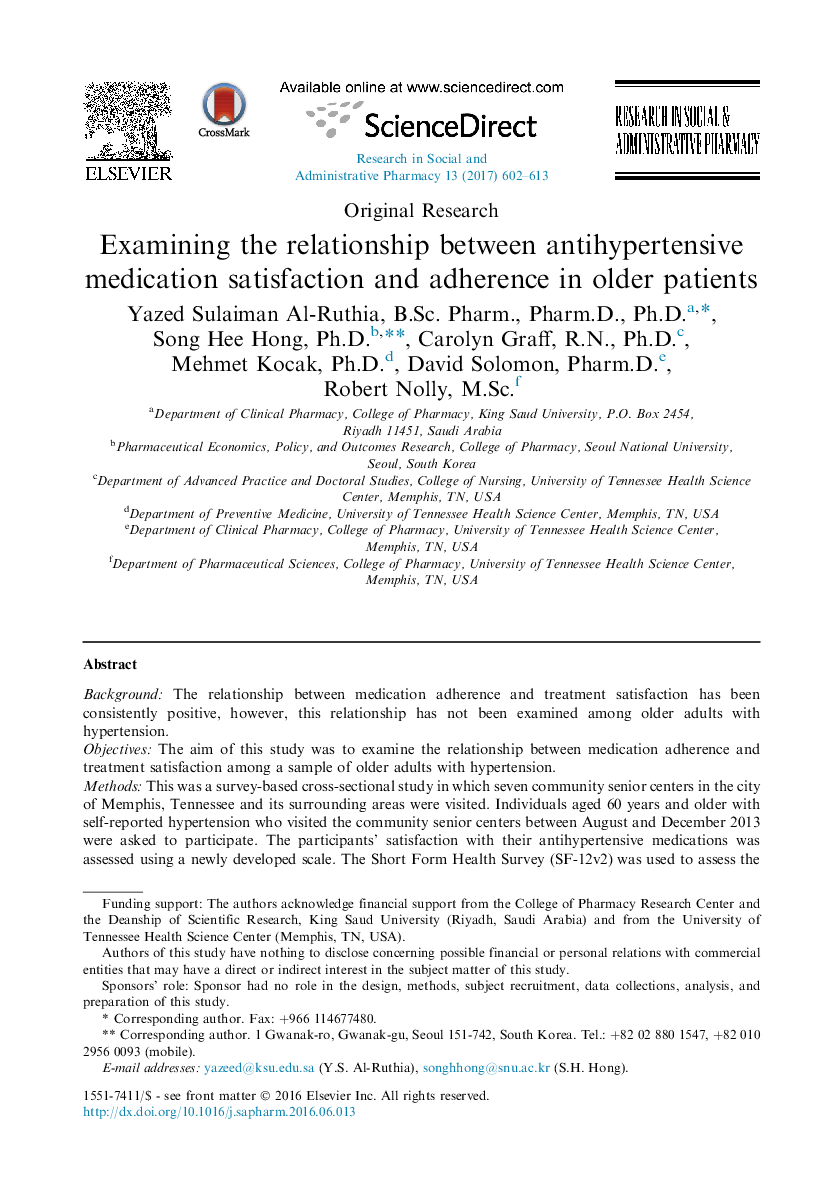| Article ID | Journal | Published Year | Pages | File Type |
|---|---|---|---|---|
| 5551321 | Research in Social and Administrative Pharmacy | 2017 | 12 Pages |
BackgroundThe relationship between medication adherence and treatment satisfaction has been consistently positive, however, this relationship has not been examined among older adults with hypertension.ObjectivesThe aim of this study was to examine the relationship between medication adherence and treatment satisfaction among a sample of older adults with hypertension.MethodsThis was a survey-based cross-sectional study in which seven community senior centers in the city of Memphis, Tennessee and its surrounding areas were visited. Individuals aged 60 years and older with self-reported hypertension who visited the community senior centers between August and December 2013 were asked to participate. The participants' satisfaction with their antihypertensive medications was assessed using a newly developed scale. The Short Form Health Survey (SF-12v2) was used to assess the health-related quality of life (HRQoL). The Primary Care Assessment Survey (PCAS) Communication scale was used to assess the satisfaction with health care provider communication. The Beliefs About Medicines Questionnaire (BMQ-General) was used to assess the participant beliefs about medications. The eight-item Morisky Medication Adherence Scale (MMAS-8) was used to assess adherence to antihypertensive medications. And the Single Item Literacy Screener (SILS) was used to assess health literacy. Multiple linear regression was conducted to examine the relationship between medication adherence and satisfaction with antihypertensive therapy controlling for multiple variables.ResultsOne hundred and ninety participants with hypertension were included in the study. Most participants were white, women, aged â¥70 years, taking â¥2 prescription medications and having â¥2 medical conditions. After adjusting for age, education, number of prescription medications, race, health literacy, sex, marital status, SF-12v2 Physical Component Summary (PCS-12) and Mental Component Summary (MCS-12), and PCAS-Communication scores, the overall satisfaction score of the antihypertensive medication regimen was positively and significantly associated with MMAS-8 sore (β = 0.262; 95% confidence interval, 0.007-0.517; P = 0.043).ConclusionsTreatment satisfaction was associated with higher medication adherence among older adults with hypertension.
